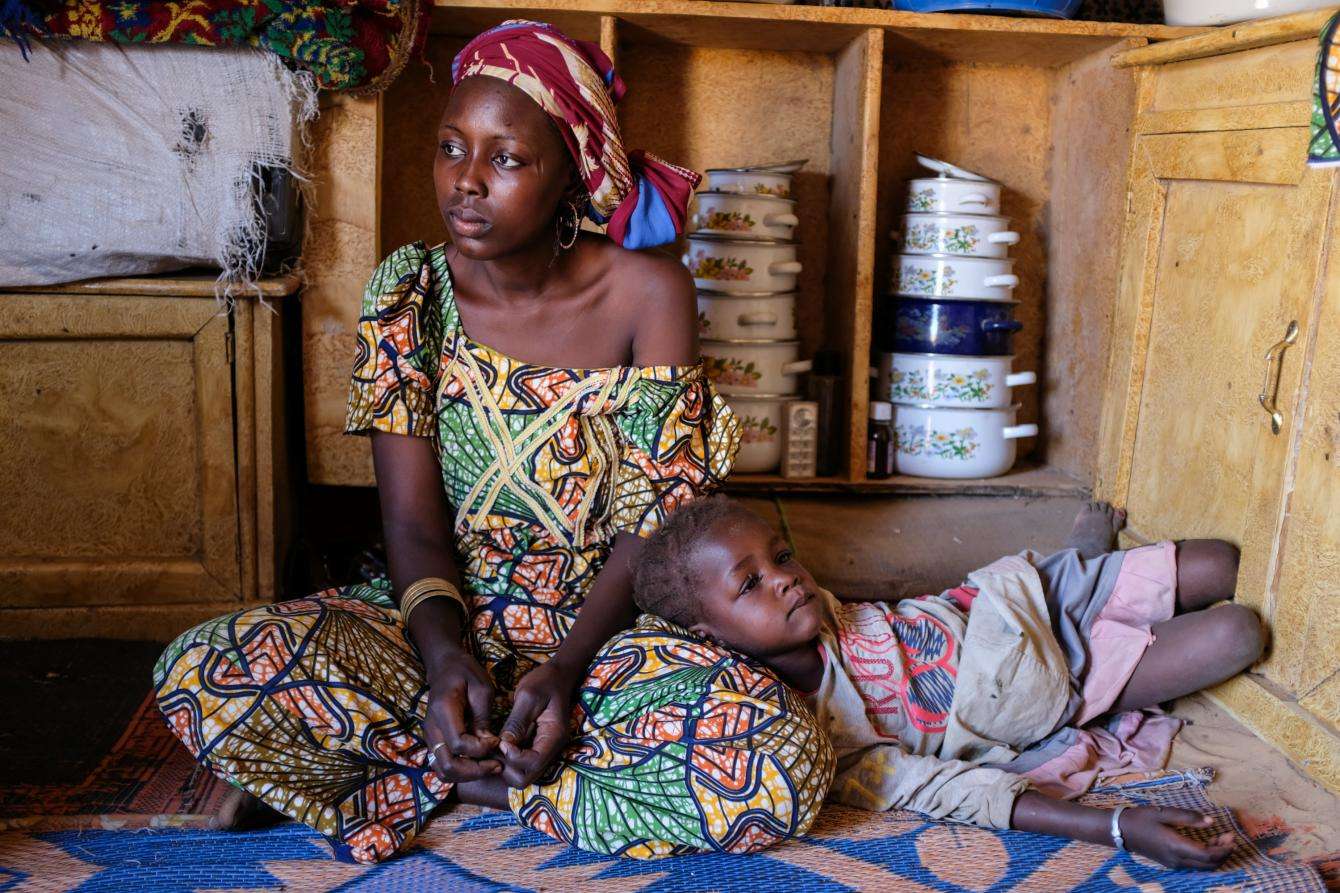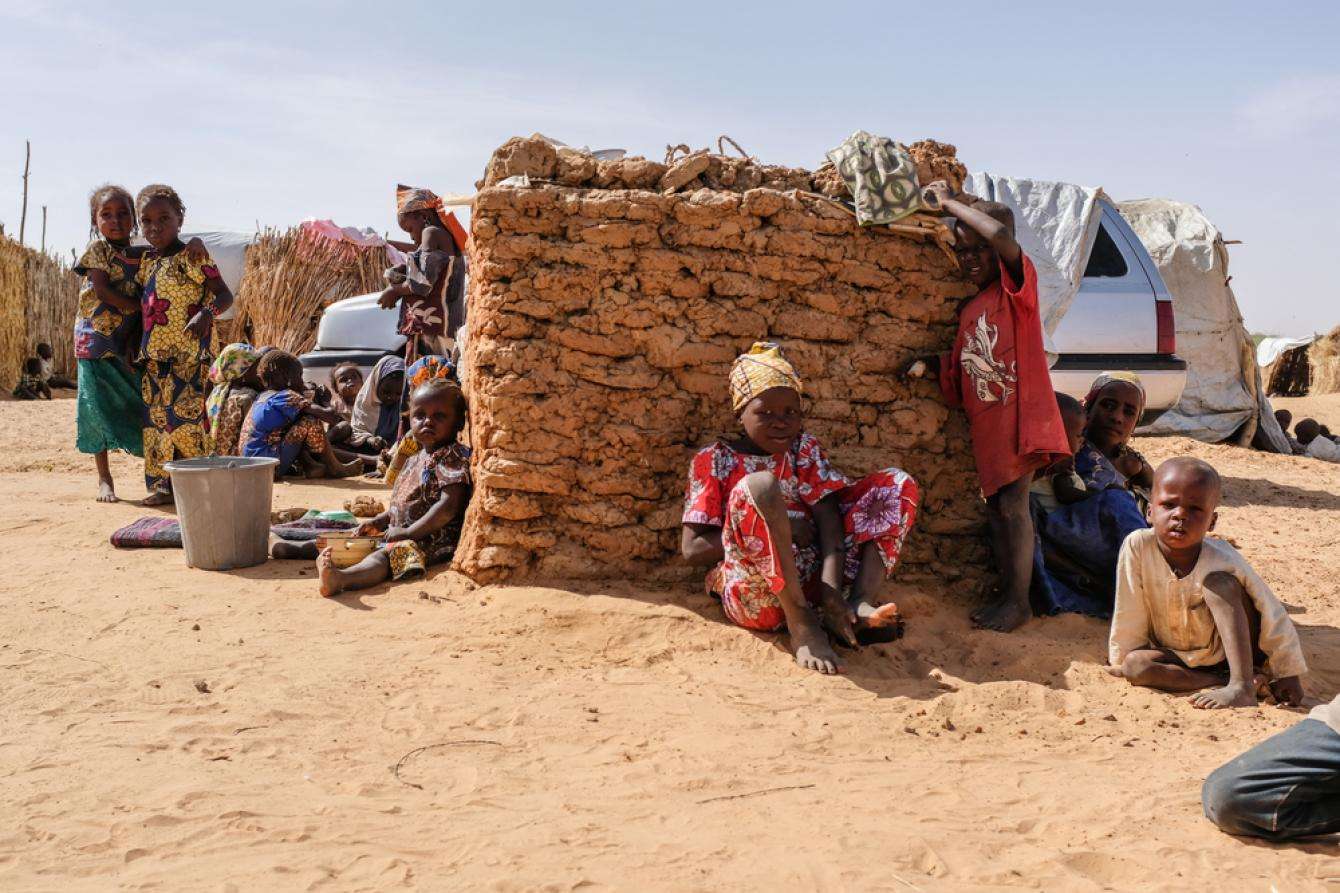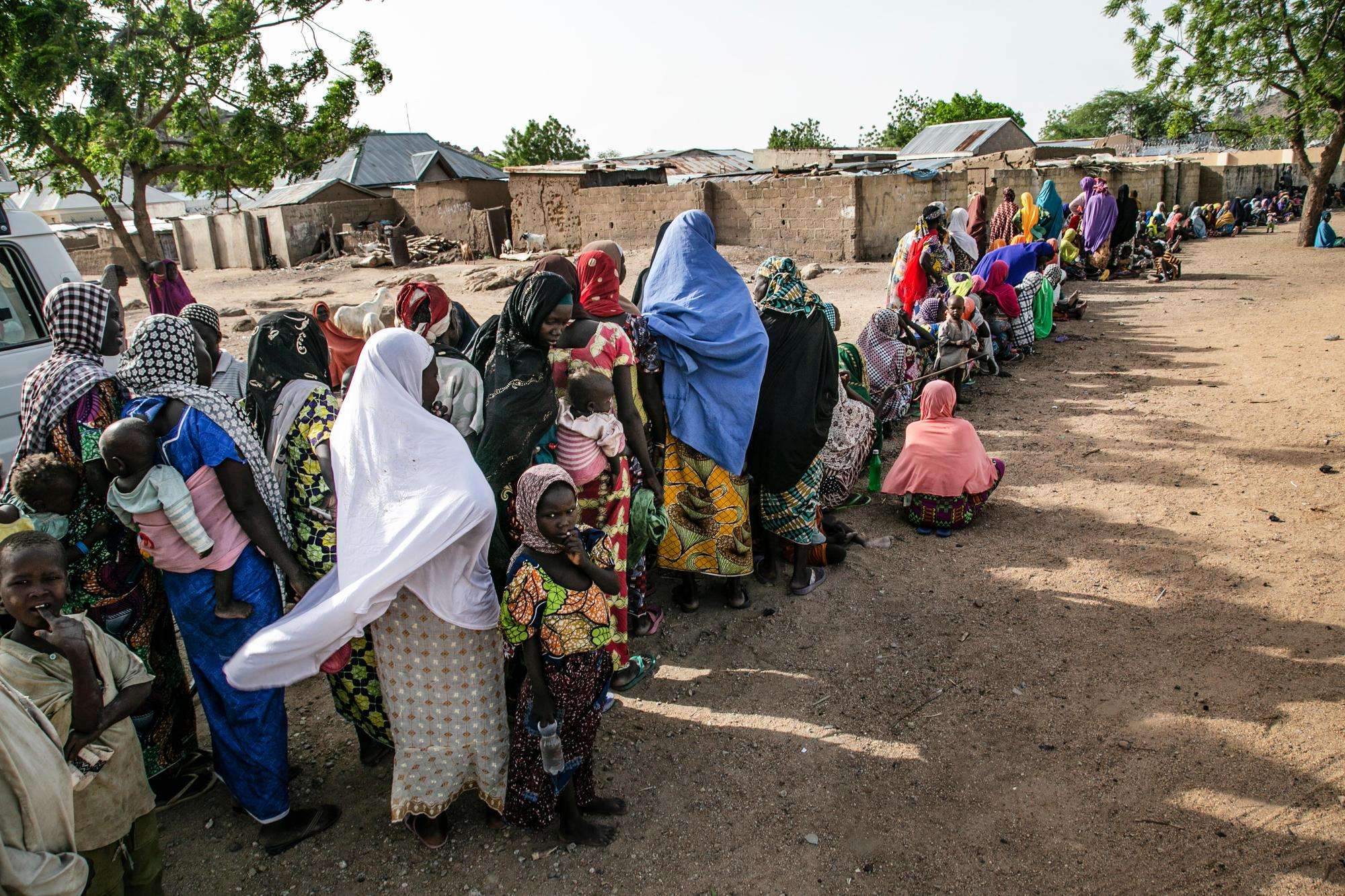Around 17 million people in the Lake Chad region live in areas affected by violent conflict between non-state armed groups and military forces. Across Cameroon, Chad, Niger, and Nigeria, Doctors Without Borders/Médecins Sans Frontières (MSF) has witnessed an increasing need for mental health support for those living amid the violence, as well as the 2.3 million people forced to flee their homes.
An important part of MSF activities in this region is aimed at reducing psychological suffering for people caught in the conflict. Many are in need of psychological support, having experienced violence, witnessed atrocities, or lost family members and belongings.
Even in places where violence may have decreased, the consequences of displacement, hopelessness, and despair continue to affect people’s lives and can lead to chronic mental health problems.

Psychological first aid
Nigeria has borne the brunt of the Lake Chad conflict. Almost 8 million people living in north-eastern Nigeria are heavily dependent on aid for their survival, including 1.6 million people who have been displaced from their homes.
In Pulka and Gwoza towns, where MSF primarily operates in transit camps, our teams offer psychological first aid to the newly arrived.
Patients are mainly women whose husbands are missing. These women have no choice but to leave their homes with their children, seeking security and humanitarian aid; their husbands have been killed, are suspected to belong to armed groups or are indeed fighting with these groups.
We are also treating an increasing number of children and adolescents. For them, mental health care is particularly important to avoid future psychological complications.
Insecurity and distress
In Diffa, a border area in Niger, MSF has provided mental health care since July 2015. Due to the surrounding conflict and difficult living conditions, people live in a constant state of insecurity and distress. We see many patients with symptoms of depression, anxiety, or post-traumatic stress disorder. Adults may feel guilt or low self-esteem and become isolated. Children may show regressive behavior, while adolescents adopt at-risk behaviors, such as drug and alcohol abuse.
“Being forced to leave and settle in a new environment without knowing how long for is very destabilizing. Individuals facing exile lose every physical, social and material landmark. They need to rebuild their lives from scratch and learn everything again,” explains Yacouba Harouna, a Nigerian MSF psychologist working in Diffa.
Recovering from personal losses and traumatic events is hard work, for which people may need psychosocial support.

Regaining routine
Many former fishermen or herdsmen from the Lake Chad islands came to Diffa.
They were used to being among economic leaders, with social and political influence. But, having been displaced, they struggle to find ways to cope. They have to learn to earn a living through small business or by asking their children to work to prevent the family from going unfed.
“While people are moving, they also start to find appropriate coping mechanisms to regain routine and a sense of control in their lives,” says Ana-Maria Tijerino, an MSF psychologist based in Geneva. “Their lives will not be perfect or the same as before, but resilience is we are looking for in many of these communities.”
Supporting young people
In Diffa, MSF teams have adopted a community-based approach to identify and address the mental health needs of those they support, particularly young people.

Mental health outreach workers regularly visit community spaces, such as camps for internally displaced people, water points, and schools to seek out children and adolescents in need of care.
Depending on their age and mental health concerns, patients are then referred to psycho-stimulation classes (drawing, dancing, storytelling, etc.), family consultations, or talking group sessions.
Community outreach workers also organize education sessions for parents, other educators, and community leaders to strengthen their ability to identify warning signs in young people.
Malnutrition and mental health
In northern Cameroon, part of MSF’s work is focused on mental health care for patients recovering from injuries as well as those suffering from malnutrition.
While it is not certain that children are more likely to be malnourished if their caretaker – usually their mother – is dealing with a mental illness, once their mental health needs have been addressed, improvements in the child’s health are seen more quickly.
Our mental health teams work to reinforce the bonds between caretaker and child, encouraging psycho-stimulation sessions to tackle the developmental consequences of malnutrition.
Caretakers are also offered a safe space to discuss their worries and symptoms, as many of them have been victims of the conflict as well.
In Mora, northern Cameroon, MSF psychologists have heard many women talk about the fear they feel.
They fear sleeping inside , after having spent many nights sleeping in the bush with their children, hiding from nightly attacks.
The kind of support these women are now receiving can have a direct impact on the relationships they build with their children.
MSF has worked in the Lake Chad region since the beginning of the conflict in Nigeria in 2009, moving to other locations in neighboring countries when the conflict spread in 2014.
In 2017, MSF ran about 25 projects in the Lake Chad region, with more than 150 international staff and more than 2,000 national staff, including doctors, nurses, psychologists and counselors.
The teams carried out 400,000 outpatient consultations in northeastern Nigeria, 300,000 in Niger’s Diffa area, and 82,000 in northern Cameroon. Yet many people remain in insecure, temporary spaces, including camps in Nigeria, or in areas that MSF cannot access due to security issues.




